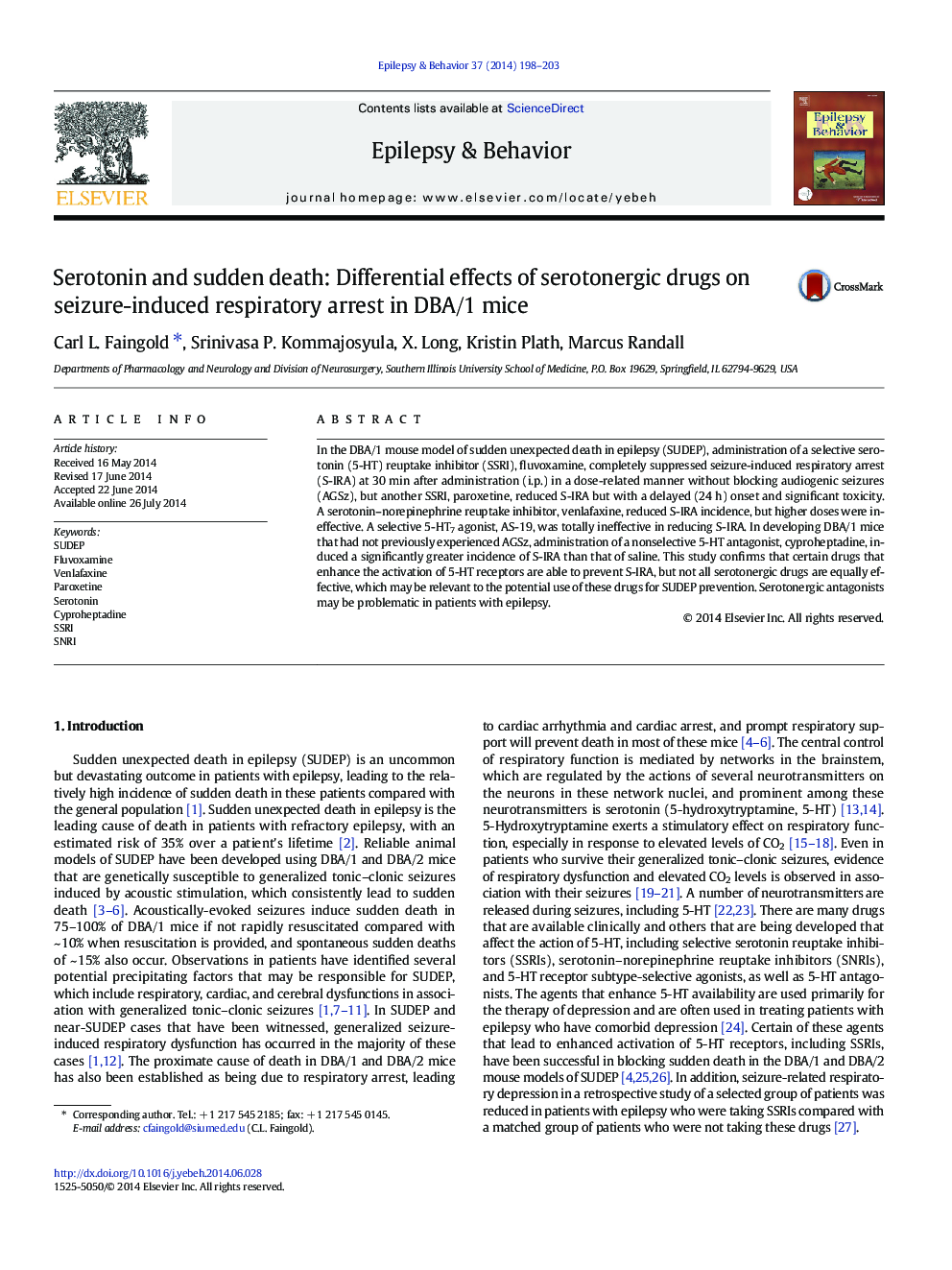| Article ID | Journal | Published Year | Pages | File Type |
|---|---|---|---|---|
| 6012148 | Epilepsy & Behavior | 2014 | 6 Pages |
â¢Fluvoxamine (an SSRI) which blocks 5-HT uptake blocks SUDEP in DBA/1 mice.â¢However, paroxetine (another SSRI) is ineffective in SUDEP blockade in DBA/1 mice.â¢Venlafaxine (an SNRI) blocks SUDEP in DBA/1 mice but only in intermediate doses.â¢A nonselective 5-HT antagonist (cyproheptadine) increased SUDEP in DBA/1 mice.â¢These findings suggest that not all SSRIs may be able to prevent SUDEP in patients.
In the DBA/1 mouse model of sudden unexpected death in epilepsy (SUDEP), administration of a selective serotonin (5-HT) reuptake inhibitor (SSRI), fluvoxamine, completely suppressed seizure-induced respiratory arrest (S-IRA) at 30Â min after administration (i.p.) in a dose-related manner without blocking audiogenic seizures (AGSz), but another SSRI, paroxetine, reduced S-IRA but with a delayed (24Â h) onset and significant toxicity. A serotonin-norepinephrine reuptake inhibitor, venlafaxine, reduced S-IRA incidence, but higher doses were ineffective. A selective 5-HT7 agonist, AS-19, was totally ineffective in reducing S-IRA. In developing DBA/1 mice that had not previously experienced AGSz, administration of a nonselective 5-HT antagonist, cyproheptadine, induced a significantly greater incidence of S-IRA than that of saline. This study confirms that certain drugs that enhance the activation of 5-HT receptors are able to prevent S-IRA, but not all serotonergic drugs are equally effective, which may be relevant to the potential use of these drugs for SUDEP prevention. Serotonergic antagonists may be problematic in patients with epilepsy.
